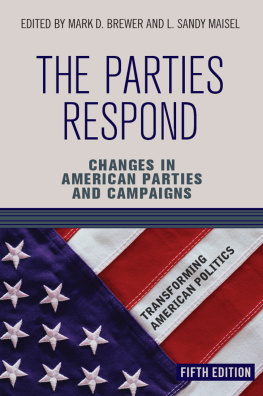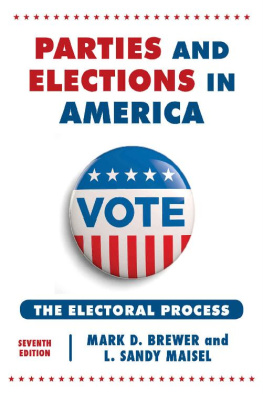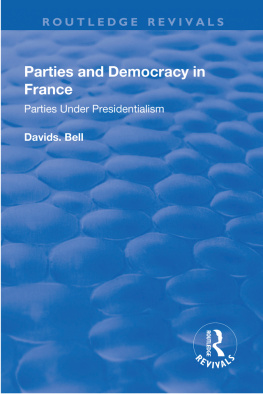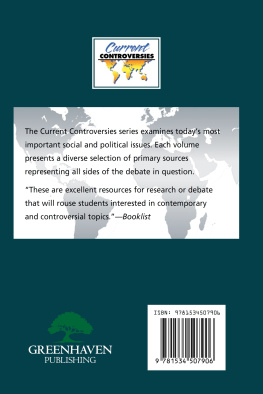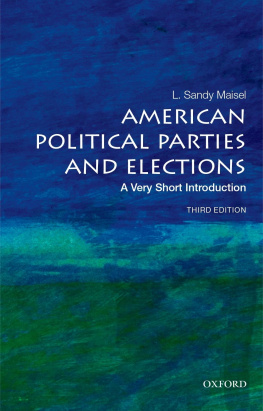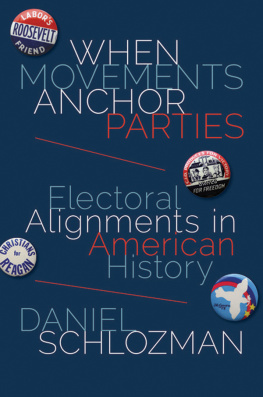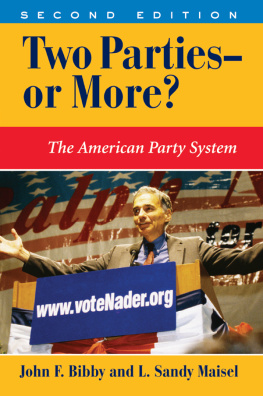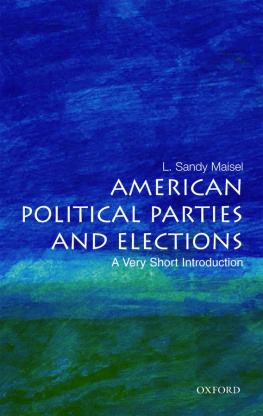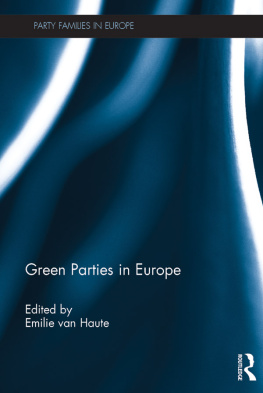The Parties Respond
TRANSFORMING AMERICAN POLITICS
Lawrence C. Dodd, Series Editor
Dramatic changes in political institutions and behavior over the past three decades have underscored the dynamic nature of American politics, confronting political scientists with a new and pressing intellectual agenda. The pioneering work of early postwar scholars, while laying a firm empirical foundation for contemporary scholarship, failed to consider how American politics might change or recognize the forces that would make fundamental change inevitable. In reassessing the static interpretations fostered by these classic studies, political scientists are now examining the underlying dynamics that generate transformational change.
Transforming American Politics brings together texts that address four closely related aspects of change. A first concern is documenting and explaining recent changes in American politicsin institutions, processes, behavior, and policy making. A second is reinterpreting classic studies and theories to provide a more accurate perspective on postwar politics. The series will look at historical change to identify recurring patterns of political transformation within and across the distinctive eras of American politics. Last and perhaps most important, the series presents new theories and interpretations that explain the dynamic processes at work and thus clarify the direction of contemporary politics. All of the books focus on the central theme of transformationtransformation in both the conduct of American politics and in the way we study and understand its many aspects.
BOOKS IN THIS SERIES
The Parties Respond, Fifth Edition, edited by Mark D. Brewer and L. Sandy Maisel
Political Consultants and Campaigns, Jason Johnson
Republican Ascendancy in Southern US House Elections, Seth C. McKee
Campaigns and Elections American Style, Third Edition, edited by James A. Thurber and Candice J. Nelson
American Voter Turnout: An Institutional Approach, David Lee Hill
Revolving Gridlock, Second Edition, David W. Brady and Craig Volden
The Congressional Experience, Third Edition, David E. Price
The Parties Respond, Fourth Edition, edited by L. Sandy Maisel
Diverging Parties, Jeffrey M. Stonecash, Mark D. Brewer, and Mack D. Mariani
Votes, Money, and the Clinton Impeachment, Irwin Morris
Class and Party in American Politics, Jeffrey M. Stonecash
Congress and the Decline of Public Trust, edited by Joseph Cooper
Public Opinion in America, Second Edition, James A. Stimson
Still Seeing Red, John Kenneth White
Masters of the House, edited by Roger H. Davidson, Susan Webb Hammond, and Raymond W. Smock
Governing Partners, Russell L. Hanson
Governance and the Changing American States, David M. Hedge
The Collapse of the Democratic Presidential Majority, David G. Lawrence
The Divided Democrats, William G. Mayer
Extraordinary Politics, Charles C. Euchner
The Irony of Reform, G. Calvin Mackenzie
Broken Contract, Stephen C. Craig
Young versus Old, Susan A. MacManus
The New American Politics, Bryan D. Jones
Bureaucratic Dynamics, B. Dan Wood and Richard W. Waterman
The Dynamics of American Politics, Lawrence C. Dodd and Calvin Jillson
The Politics of Interest: Interest Groups Transformed, edited by Mark P. Petracca
The Parties Respond
CHANGES IN AMERICAN PARTIES AND CAMPAIGNS
FIFTH EDITION
Mark D. Brewer
University of Maine
L. Sandy Maisel
Colby College
First published 2013 by Westview Press
Published 2018 by Routledge
711 Third Avenue, New York, NY 10017, USA
2 Park Square, Milton Park, Abingdon, Oxon OX14 4RN
Routledge is an imprint of the Taylor & Francis Group, an informa business
Copyright 2013 Taylor & Francis
All rights reserved. No part of this book may be reprinted or reproduced or utilised in any form or by any electronic, mechanical, or other means, now known or hereafter invented, including photocopying and recording, or in any information storage or retrieval system, without permission in writing from the publishers.
Notice:
Product or corporate names may be trademarks or registered trademarks, and are used only for identification and explanation without intent to infringe.
Every effort has been made to secure required permissions for all text, images, maps, and other art reprinted in this volume.
Library of Congress Cataloging-in-Publication Data
The parties respond : changes in American parties and campaigns / [edited by] Mark D. Brewer, L. Sandy Maisel. 5th ed.
p. cm.
Includes bibliographical references and index.
ISBN 978-0-8133-4600-7 (pbk. : alk. paper) ISBN 978-0-8133-4601-4 (e-book)
1. Political partiesUnited States. I. Brewer, Mark D. II. Maisel, Louis Sandy, 1945JK2261.P29 2012
324.273dc23
2012004008
ISBN 13: 978-0-8133-4600-7 (pbk)
To Marks children, Megan, Jack, David, and Gabriel, the first one of these to you as a group, and to Sandys grandchildren, Conrad, Weber, Gus, Tyler, and Leo, hopefully the next generation to carry on a tradition of interest in and dedication to the principles of American politics.
Contents
Jeffrey M. Stonecash, Syracuse University
Nicol C. Rae, Florida International University
Mark D. Brewer, University of Maine
Marjorie Randon Hershey, Nathaniel Birkhead, and Beth C. Easter, Indiana University
Daniel M. Shea, Allegheny College, J. Cherie Strachan, Central Michigan University, and Michael Wolf, Indiana UniversityPurdue University Fort Wayne
Paul S. Herrnson, University of Maryland
Barbara Norrander, University of Arizona
Diana Dwyre, California State University
Walter J. Stone, University of California, Davis, L. Sandy Maisel, Colby College, and Trevor C. Lowman, University of California, Davis
Diana Owen, Georgetown University
Sean Theriault and Jonathan Lewallen, University of Texas
G. Calvin Mackenzie, Colby College
Alan I. Abramowitz, Emory University
The first edition of this compilation was published in 1990, with the contributors focused on the 1988 presidential election and its aftermath. At that time one of the dominant themes in the academic literature on American political parties was the idea of party decline. The guts of this idea entailed the belief that for a variety of reasonsthe increased use of television advertising in election campaigns, the institution of direct primaries and caucuses to select presidential candidates, the advantages of incumbency in congressional elections, the rise of candidate-centered campaigns, to name but a fewpolitical parties in the United States were, to put it simply, not what they used to be. The days of parties being central players in American politicschanneling and managing political conflict, mobilizing and educating voters, structuring individual vote choice, dominating policy making in Congresswere over, and in the eyes of more than a few were unlikely to ever return. Given that such a view represented the dominant paradigm of the time, it is not surprising that the first edition of


